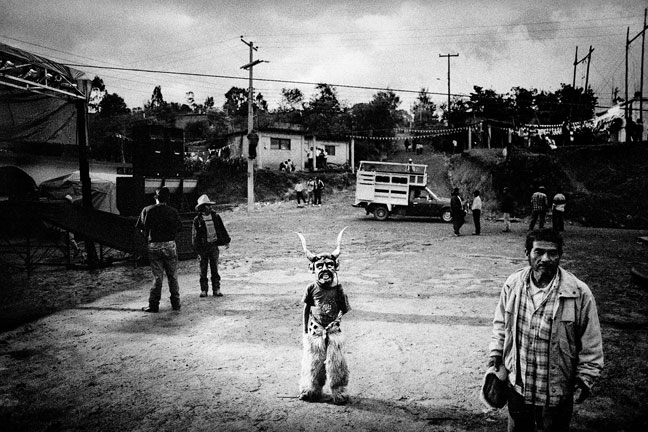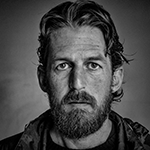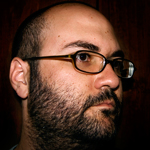
Matt Black
Matt Black documents the changing human relationship to food, farming, and the environment. Alejandro Cartagena documents the development of suburbs and the invisible consequences of this 21st century Mexican progress, where the rapid construction of houses outweighs the development of a social infrastructure.
Presenters: Matt Black Alejandro Cartagena
Location: Brooklyn Bridge Park – Pier 5 Uplands
Matt Black documents the changing human relationship to food, farming, and the environment. His work on contemporary rural life in the agricultural empire of his native Central California led him to the indigenous farming communities in the Mixteca region of southern Mexico, and their collapse from environmental degradation and migration.
Alejandro Cartagena documents the development of suburbs and the invisible consequences of this 21st century Mexican progress, where the rapid construction of houses outweighs the development of a social infrastructure. His project Car Poolers shows the lack of proper public transportation, which forces workers to commute hours from new housing developments in northern Mexico to the wealthy southern Monterrey suburbs.
The two bodies of photography are long-term investigations into the shifting relationship between people and land and the role that available work and the labor force plays in structuring communities. They explore the ecosystem of rural, suburban and urban spaces, how people change land in the name of progress and how that in turn affects their daily lives.

Matt Black is from California’s Central Valley, an agricultural region in the heart of the state. His work has explored the connections between migration, poverty, farming, and the environment in his native rural California and in southern Mexico for two decades.
In 2014, he began the project The Geography of Poverty, a digital documentary work that combines geotagged photographs with census data to map and document poor communities. In the summer of 2015, he undertook a thirty state trip photographing seventy of America’s poorest places, work that was published as a four part series on MSNBC. Other projects include The Dry Land, about the impact of drought on California’s agricultural communities, and The Monster in the Mountains, about the disappearance of forty three students in the southern Mexican state of Guerrero. Both of these projects, accompanied by short films, were published by The New Yorker.
Time Magazine named him Instagram Photographer of the Year for his Geography of Poverty project. His work has also been honored by the Robert F. Kennedy Memorial Foundation, the Magnum Foundation Emergency Fund, the Pulitzer Center on Crisis Reporting, Pictures of the Year International, World Press Photo, the Alexia Foundation, the Center for Cultural Innovation, and others. He lives in Exeter, a small town in California’s Central Valley.

Alejandro Cartagena lives and works in Monterrey, Mexico. His projects employ landscape and portraiture as a means to examine social, urban and environmental issues in the Latin-American region. Over the course of his career he has received several awards including the Photolucida Critical Mass book awards and PYOi amongst others. His work has been shown internationally, including at GuatePhoto festival in Guatemala City, FOTOFEST in Houston Texas, and UNSEEN by FOAM in Amsterdam. Alejandro’s work has been published in magazines and newspapers such as Newsweek, Le Monde, and the New York Times. His book Suburbia Mexicana was published by Photolucida and Daylight books in 2011.